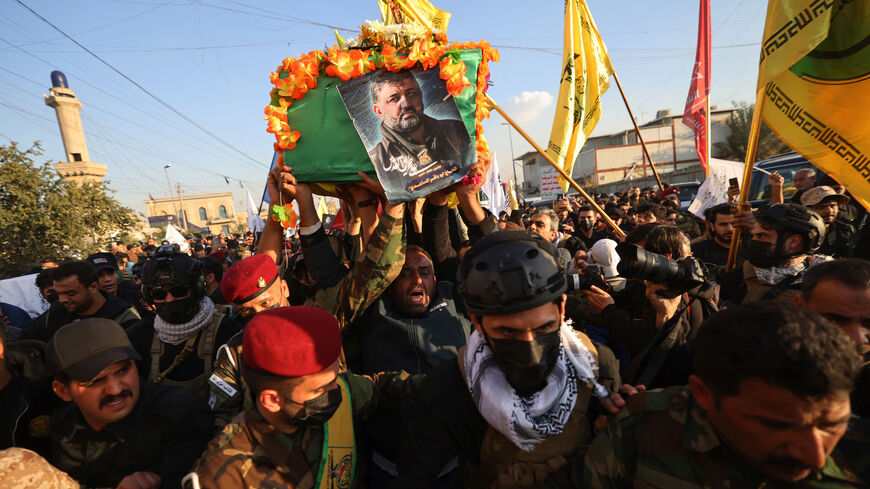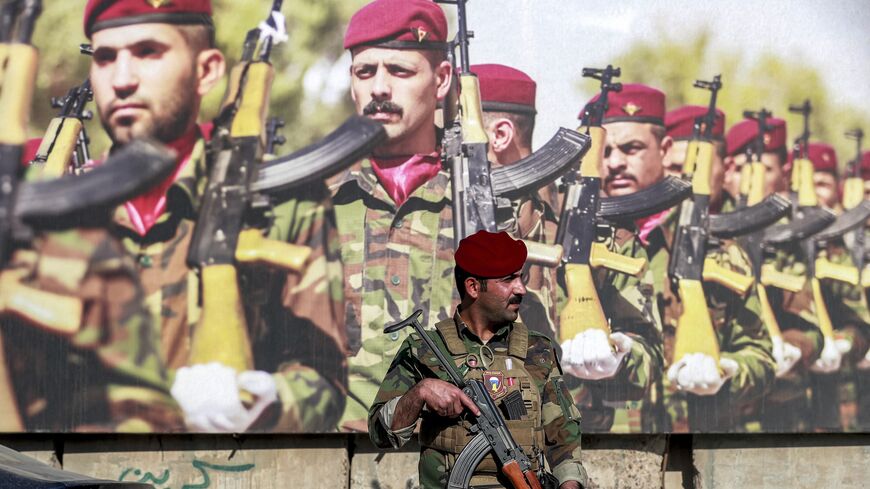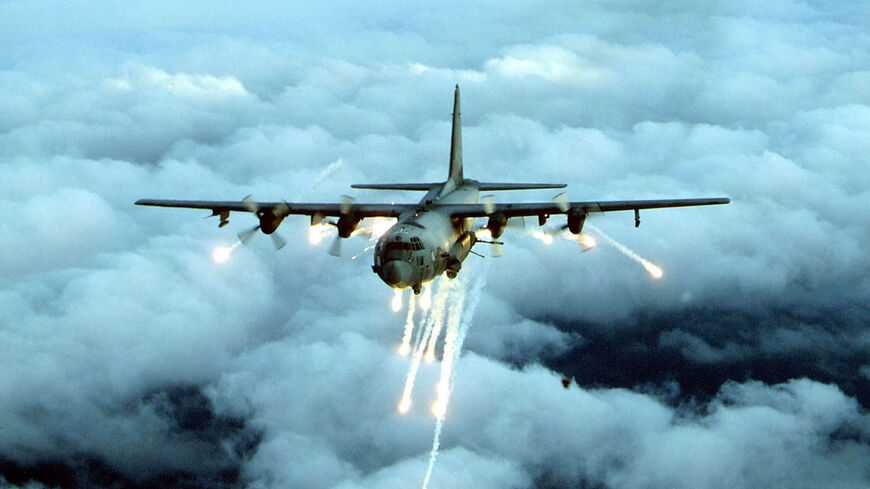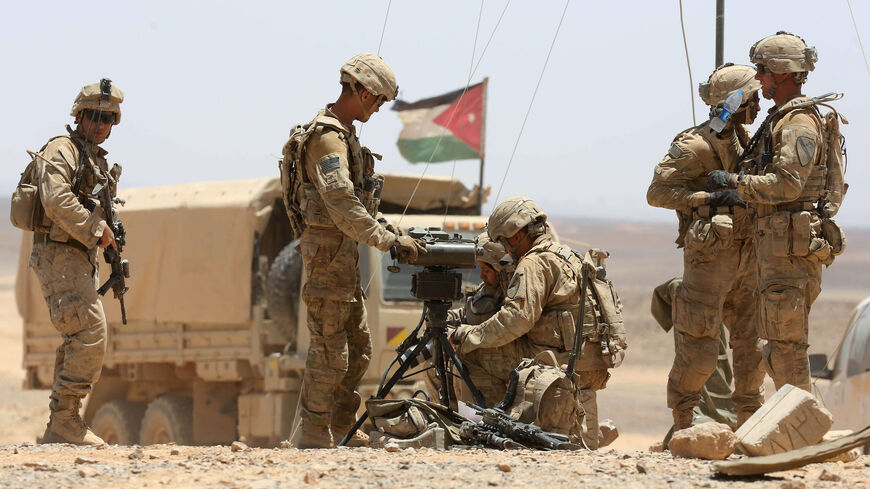New attacks near US bases in Iraq, Syria threaten uneasy detente
The Pentagon seemed to downplay the first new attacks on US troops in Syria and Iraq since February, as Iraq's Kataib Hezbollah militia distanced itself from responsibility.
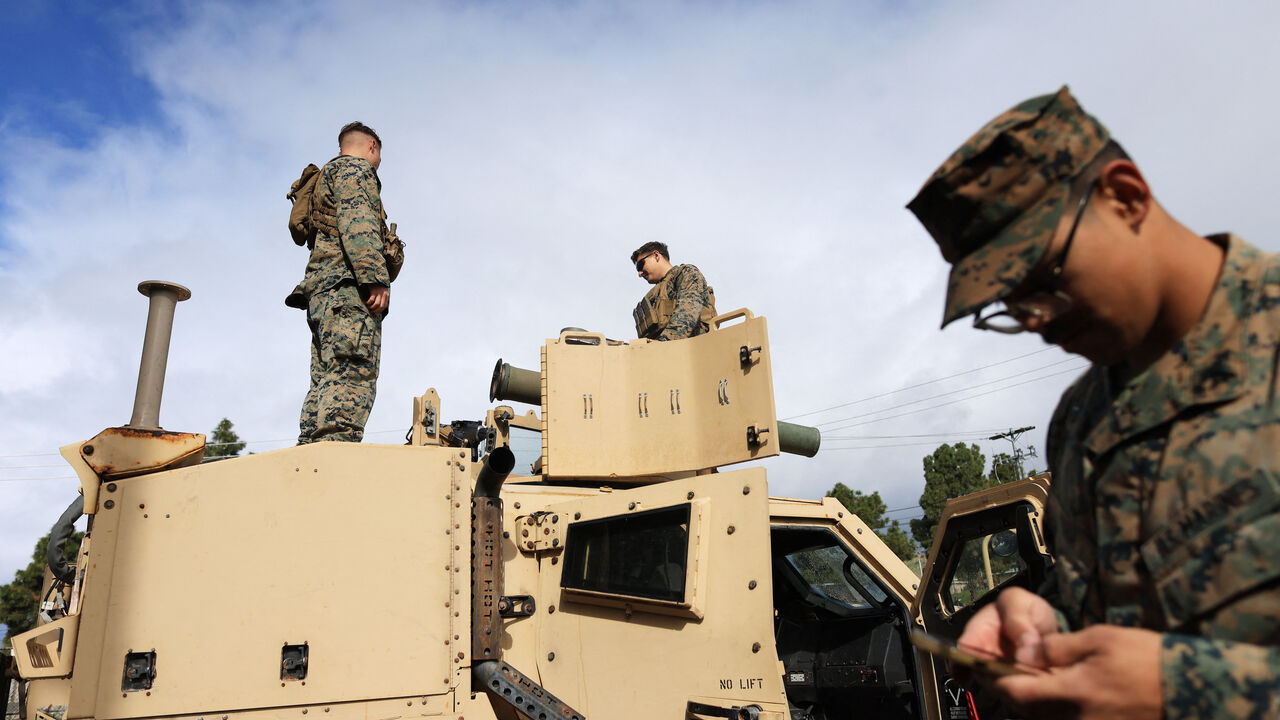
WASHINGTON — An uneasy detente between US troops and Iran-backed militias seemed at risk of collapse on Monday after coalition forces twice carried out defensive strikes against weapons systems used to fire at US bases in Iraq and Syria in less than 24 hours.
Rockets fired from Iraq landed near the US base at Rumalyn in northeast Syria on Sunday night, prompting a fighter aircraft affiliated with the US-led military coalition in Iraq and Syria to destroy a ground-based launcher in self-defense, officials said Monday.
No American personnel were injured in that incident, which defense officials initially described as a “failed rocket attack.”
Yet Pentagon officials on Monday hesitated to attribute any intent behind the barrage, which press secretary US Air Force Maj. Gen. Patrick Ryder described as the result of “some type of malfunction, [a] failed rocket attack” in which the launcher vehicle was “shooting rockets all over the place.”
Two US defense officials speaking on the condition of anonymity later confirmed to Al-Monitor that US Central Command had classified the incident as a deliberate attempted attack on the Rumalyn Landing Zone, marking the first incident to be categorized as such by the US military since early February.
Earlier on Sunday, Telegram channels circulated what appeared to be an announcement by Iraq’s Kataib Hezbollah (KH) militia that the group would resume attacks on US forces in the region. KH later denied it had issued any such statement.
The Pentagon's cautious messaging and the denial by KH seemed to underscore both sides' reluctance to resume a long history of tit-for-tat strikes that have failed to achieve the objectives of either side.
US officials have not said which group they believe is behind Sunday’s attack, but they have singled out KH, Kataib al-Sayyid al-Shuhada and other militias backed by Iran’s Islamic Revolutionary Guard Corps (IRGC) in response to previous attacks in recent years.
“We find it especially troubling that this militia group chose to resume its attacks against US personnel just hours after Prime Minister [Mohammed Shia al-Sudani] of Iraq had completed a successful visit to Washington. So it seems clear that Iran has no respect for Iraqi sovereignty,” State Department spokesperson Matthew Miller said in a statement following the attack.
“We’ve made quite clear to Iran and Iran’s proxy groups that we will defend our interests and defend our personnel. That continues to be the case,” Miller said.
In an apparently separate incident on Monday, US forces shot down two airborne drones near the Ain al-Asad air base in Iraq’s western Anbar province. Two US defense officials told Al-Monitor that an Iranian proxy group had launched the attempted attack on the base, though they did not specify which.
The renewed attacks on US troop positions came after a massive explosion damaged the Kalsu base south of Baghdad in the early morning hours of Saturday, killing one member of the predominantly-Shiite Popular Mobilization Units and injuring at least eight other people. Both Israel and the US military denied responsibility for the blast. The Iraqi army said it was investigating the incident, which came just hours after Israel launched a limited retaliatory strike inside Iran in response to the first-ever direct Iranian attack against Israel.
The Ain al-Asad air base has borne the brunt of attacks by Iran-backed militias since the outbreak of Israel's war in the Gaza Strip, for which Iran-backed groups across the Middle East have vowed retaliation. IRGC-backed militias have repeatedly targeted US bases in Iraq and Syria in retaliation for actions by Israel in recent years in a bid to pressure the United States to withdraw from the region.
But the attacks on US forces stopped in early February after a series of US retaliatory airstrikes culminated in a drone strike in Baghdad that killed KH’s top commander for Syria.
The United States maintains roughly 2,500 military personnel in Iraq and 900 in Syria, according to official numbers, in the wake of the war against the Islamic State.
Biden administration officials have said they have no plans to withdraw troops from Iraq, but they began consultations late last year with Baghdad about “normalizing” defense ties and possibly reshaping the troop presence in the country.
Prime Minister Sudani faces intense pressure from pro-Iran factions in Baghdad to oust American troops from Iraq, though he has reportedly privately expressed concern that US troops should not leave the country.
During his first visit to Washington last week as prime minister, Sudani sought to focus on opportunities for Iraq’s economic development while forwarding a request to purchase air defense systems and military helicopters.
US and Iraqi officials are expected to continue talks on the future of the American troop presence at meetings scheduled for July.
American officials have privately communicated indirectly to the militias that they will not draw down their troop presence in Iraq under fire, Al-Monitor previously reported.

